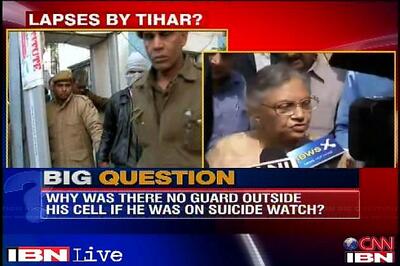
views
RALEIGH, N.C.: Certain felons released from prison or never incarcerated and who registered to vote recently in North Carolina will remain eligible as litigation over their right to vote continues, the states highest court has ruled.
The state Supreme Court, in a lawsuit challenging when North Carolina residents convicted of felonies have their voting rights restored, essentially declined to reinstate a order last month that declared any offender no longer behind bars could register. That order would have affected about 56,000 people who were still serving probation, parole or other supervision, according to court records.
On Sept. 3, the state Court of Appeals blocked last months trial order amid pending litigation filed by civil rights groups and ex-offenders challenging state law on the restoration of voting rights. Those plaintiffs immediately appealed to the Supreme Court, which late Friday declined to block the Court of Appeals order, but also declared it would be implemented only going forward.
That means a felony offender who registered between Aug. 23 and Sept. 3 when the trial judges’ order was in place and based solely on that order can’t be removed from voting rolls and are legally registered voters” until told otherwise, the Supreme Court wrote.
So those offenders who registered will be able to vote in this fall’s municipal elections. Early in-person voting for October elections begins Thursday. It wasn’t immediately known how many people who qualified under the Sept. 23 order actually registered.
Plaintiffs in the 2019 lawsuit that led to the orders and appeals said Friday’s ruling was disappointing but urged those who registered to cast ballots. The lawsuit contends current state law on restoring voting rights is racially discriminatory by disproportionately affecting Black offenders and violates the state constitution.
We are now a step closer to our goal, and even in the face of this temporary delay of full justice, we are celebrating, the plaintiff organizations said in a news release Saturday. “We remain committed to the vision of an equal democracy, untainted by laws illegally designed to disenfranchise Black people in this state.
State Republican legislative leaders, some of whom are named defendants in the lawsuit along with the State Board of Elections, have said the trial court went too far with its expansive order so close to an election.
The Supreme Court made the right call,” Sen. Warren Daniel, a Burke County Republican and co-chairman of the Senate elections committee, said on Saturday. “A judge cannot just write a new law because he or she doesnt like the old one.
The order was signed by Associate Justice Tamara Barringer on behalf of the court, which is composed of four registered Democrats and three Republicans. There was no legal explanation for the decision.
The North Carolina Constitution forbids a person convicted of a felony from voting unless that person shall be first restored to the rights of citizenship in the manner prescribed by law. A 1973 law laying out those restoration rules requires the unconditional discharge of an inmate, of a probationer, or of a parolee.
But the Aug. 23 order had said election officials couldnt deny voter registration to any convicted felon who is only on probation, parole or post-release supervision. A plaintiffs attorney said last month the trial courts decision would represent the largest expansion of North Carolina voting rights since the 1960s. There are more than 7.1 million registered voters in North Carolina.
Democrats were in charge of the legislature when the law, which lowered hurdles for ex-felons to vote, was approved. The GOP defendants said there’s no evidence the law is carried out today in a racially discriminatory manner.
Last year, trial judges ruled felony offenders couldnt be denied the right to vote if the reason their rights hadnt been restored was due to unpaid fines or restitution. The Supreme Court said on Friday that rule remains in effect.
Disclaimer: This post has been auto-published from an agency feed without any modifications to the text and has not been reviewed by an editor
Read all minute-by-minute news updates for Uttar Pradesh election results 2022, Punjab election results 2022, Uttarakhand election results 2022, Manipur election results 2022, and Goa election results 2022.
Click here for seat-wise LIVE result updates.




















Comments
0 comment